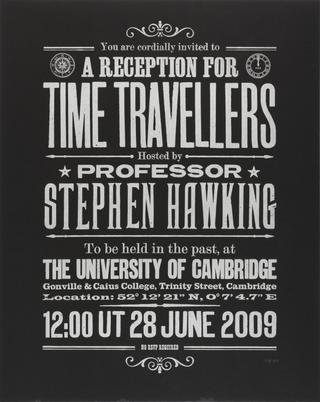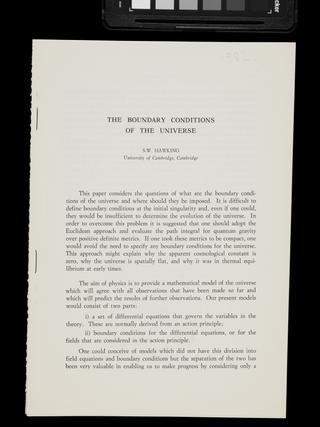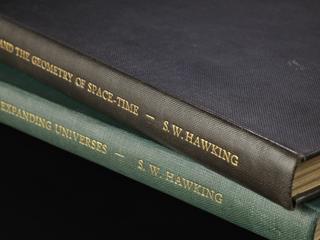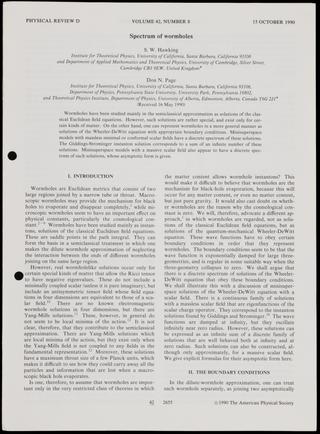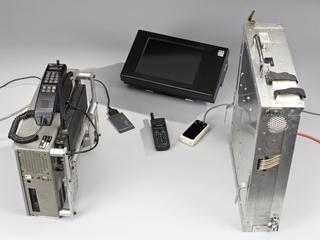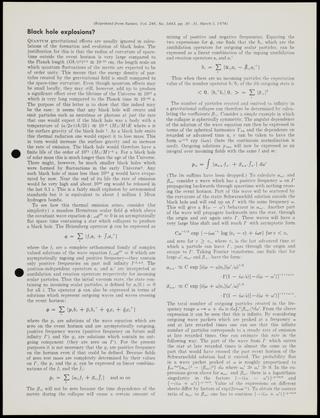
Book on disarmament and the responsibility of scientists by Soviet physicist Moisey Markov dedicated to Hawking
- maker:
- Moisey Alexandrovich Markov




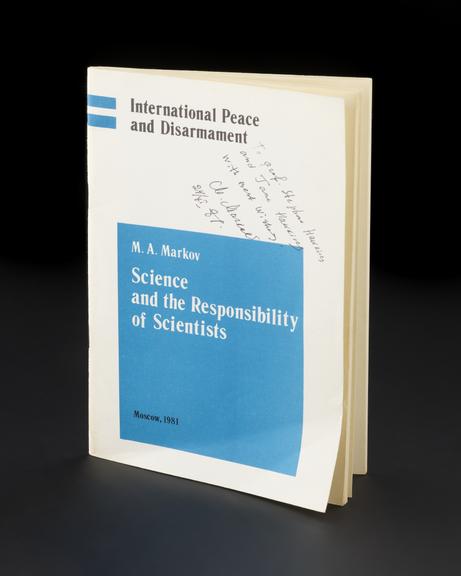

Markov, M.A., Science and the responsibility of scientists, General Editorial Board for Foreign Publications, Nauka Publishers, Moscow, 1981. Dedication by author to SWH and Jane on front cover.
Stephen Hawking collaborated closely with scientists in the Soviet Union and other countries of the Eastern Bloc who were working on the same theories. Such scientific exchanges were part of a 1960s-1970s political rapproachment, and the most important scientific contributions of Hawking such as Hawking radiation and his contributions to cosmic inflation, were developed in close communication with Soviet colleagues.
After the 1979 invasion of Afghanistan and arrival of the Reagan adminstration in the United States, this collaboration became more difficult, but Stephen Hawking continued to visit the Soviet Union and to host Eastern Bloc scientists in Britain, helping to maintain the communication that was crucial for their research. And beyond this scientific collaboration, Hawking and many colleagues were active in movments such as Pugwash and the Bulletin of Atomic Scientists, as were their Soviet counterparts.
This particular book was written by the brilliant Soviet physicist Moisey Markov, the first proponent of underwater neutrino observatories and key contributor to quantum theories of gravity. As a member of the Pugwash movment he also wrote political books such as this one. It is a reprint from an article which appeared in the UNESCO journal, 'Impact on Science and Society' (Volume XXV, January-March 1975) within an issue dedicated to 'Science and Common Sense'.
It is likely that this book was given to Hawking during one of his visits to Moscow in 1981.
This work is now fully available online at UNESCO:
https://unesdoc.unesco.org/ark:/48223/pf0000012809
Stephen Hawking's office contained more than 300 books, all located on the bookshelves above the kitchen counter. They date as early as his student years, and the bulk corresponds to his long professional career from the 1960s to the 2010s. From the 1990s onwards Stephen would have used digital versions increasingly, so the books in his bookcases were a select subset. While some items are rare copies -like the dissertations he advised or book drafts- most of the library contents are rather standard prints. The majority contain significant individual marks, and even for those that do not, the connection to Hawking is evident. Books by friends and colleagues often contain inscriptions and inserts that evidence their relationship. Others remind of places he visited, conferences he attended, or relate to having become a celebrity and inspiration throughout the world. Of the books that he authored, there are usually multiple versions, translations, and occasionally draft versions. A good portion of the books also contain inserts such as notes by the authors or editors, receipts, and occasionally unrelated material that found its way into them around the time of their acquisition. A portion of them has also been bookmarked with post-its by Stephen's assistants pointing to the sections most relevant to show visitors.
Details
- Category:
- Stephen Hawking Office
- Collection:
- Stephen Hawking’s Office
- Object Number:
- 2021-561/242
- Materials:
- paper (fibre product)
- Measurements:
-
overall: 215 mm x 147 mm x 4 mm, .085 kg
- type:
- book
- credit:
- Accepted in lieu of Inheritance Tax by H M Government from the Estate of Stephen Hawking and allocated to the Science Museum, 2021
